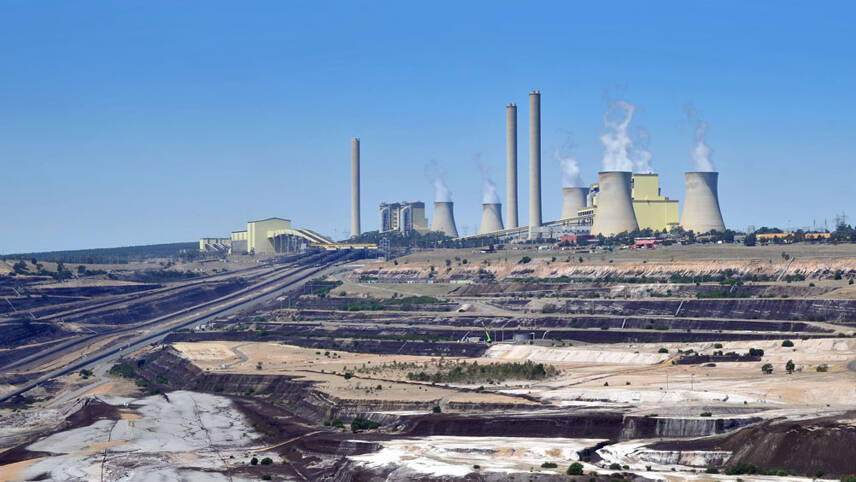Register for free and continue reading
Join our growing army of changemakers and get unlimited access to our premium content

Pictured: The Loy Yang Power Station and adjacent coal mine, Australia
This is according to BloombergNEF’s fourth annual edition of the G20 Zero-Carbon Policy Scoreboard, ranking countries on the basis on their decarbonisation progress. Each nation was evaluated on a scale of 0 to 100%, with factors considered including the extent of government support allocated for reducing greenhouse gas (GHG) emissions, the effectiveness and strength of these initiatives and the policy implementation process. Additionally, metrics were used to assess the impact of these policies in initiating tangible changes at the grassroots level.
According to the scoreboard, the EU, the UK and the US have maintained their positions as global leaders in decarbonisation efforts.
However, despite retaining the top spots, these countries have failed to significantly improve their performance from the previous year. On average, there has been a slight decline of 1% point among the top scorers.
The top-ranked G20 members incurred deductions in their scores due to heightened uncertainty among consumers, industry and investors, arising from inadequate or delayed information on new policies and premature termination of programmes.
The report highlights a pressing need for more support in challenging-to-decarbonise sectors, where cleaner options are limited or costly, with a focus on incentivising demand and infrastructure development.
Nevertheless, it reveals that the G20 nations continue to provide significant annual public funds to support coal, oil, natural gas and fossil-fuel-based power generation. These policies distort markets, encouraging excessive consumption and investment in high-emission technologies.
The International Monetary Fund has previously estimated that national governments around the world provide about $7trn of fossil fuel subsidies each year.
The report emphasises the critical role of developed countries, including the UK, within the G20, as they collectively account for 18% of global greenhouse gas (GHG) emissions. As such, there is a growing imperative for these nations to lead by example and accelerate efforts to reduce carbon emissions.
UK lags behind EU counterparts
In the scoreboard, the UK’s decarbonisation score dropped to 63%, down by 2% compared to the previous year, indicating a regression in efforts to reduce carbon emissions.
As per the report, policy setbacks, such as the decision to postpone the deadline for phasing out new internal combustion engine (ICE) vehicle sales to 2035, and delays in implementing stricter regulations on energy performance certificates and boiler bans, have been identified as factors hindering progress in the UK.
Furthermore, according to the report, the UK’s decarbonisation score ranked 5th overall, trailing behind France (71%), Germany (71%), the EU (68%) and Italy (64%).
The UK Government asserts that between 1990 and 2021, the UK reduced emissions by 48%, outpacing all other G7 nations in decarbonisation speed. The BloombergNEF data in the scorecard casts doubt on whether that leadership has been continued since 2021.
Despite these setbacks, the report highlights that there have been some improvements in certain areas, particularly in the realm of clean power.
The UK has seen a 5% increase in its clean power score, attributed to initiatives such as the emission trading scheme and investments in clean hydrogen technology.
Throughout the entirety of 2023, the electricity generated from renewable energy sources exceeded the total energy demand of all 28 million homes in the UK.


Please login or Register to leave a comment.